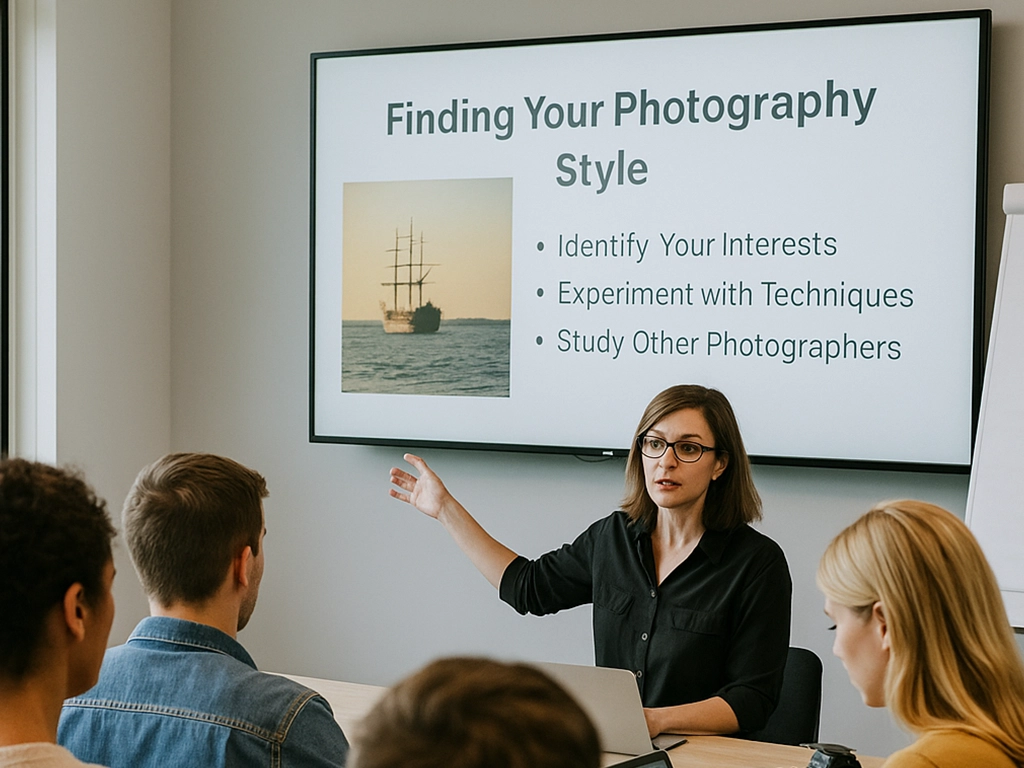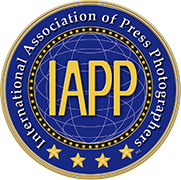Introduction
In journalism and press photography, professional success is determined not only by your technical skills and storytelling skills, but also by the strength of your network. Building connections with colleagues, editors, agencies, and industry experts opens doors to new opportunities, collaborations, and professional development. For both experienced professionals and newcomers, strategic networking can dramatically accelerate career growth.
The International Association of Press Photographers (IAPP) provides a powerful platform for journalists and photographers to build meaningful global connections. Through structured networking opportunities, mentoring programs, and a worldwide community of members, IAPP enables its members to expand their professional reach and gain access to valuable resources.
Why networking is so important in journalism
In the highly competitive media world, many career opportunities are never publicly advertised. Instead, they are created through personal recommendations, insider knowledge and trustworthy professional circles. Strong networks offer journalists several decisive advantages:
- Access to hidden job boards: Many freelance jobs and full-time positions are filled by personal referrals. For example, a photojournalist may be referred by another member for an exclusive international assignment that has never been publicly published.
- Opportunities for collaboration: Networking connects journalists with partners for joint projects, investigative teams, and cross-border reporting collaborations. A journalist working on a complex corruption investigation can team up with colleagues in several countries who contribute local research, contacts, and reviews.
- Mentorship and guidance: Experienced journalists often share advice, industry insights, and career tips with newer colleagues. A young photographer may receive portfolio feedback or career advice from a veteran covering major global events.
- Knowledge sharing: Networking facilitates the sharing of practical tips, story leads, technical advice, and regional insights. For example, members often exchange contacts for fixers, translators, or sources in conflict zones.
- Credibility and trust: A well-established network increases your reputation and credibility in the industry. Editors are more likely to trust photographers who are recommended by well-known colleagues.
- Support in crisis situations: Journalists working in conflict zones or difficult environments benefit from professional connections that can provide advice, safety contacts and emergency assistance. For example, a reporter who has been caught up in sudden political turmoil may rely on contacts to provide critical local security information or logistical assistance.
- Access to unique story angles: Networking opens up access to niche topics and insider communities. A photographer interested in an underground cultural movement can be introduced to key people through trusted network connections.
- Faster problem resolution: In the event of equipment failures, legal issues, or ethical dilemmas, a strong network of colleagues can provide fast, experience-based solutions.
In short, networking isn’t just about self-marketing – it’s about building lasting, mutually supportive professional relationships that open doors to growth, security, and unique reporting opportunities that would otherwise remain inaccessible.

How the IAPP creates networking opportunities for its members
The IAPP offers a wide range of structured networking opportunities that are specially designed for journalists and press photographers at all career levels.
International Member Directory
Each IAPP member is part of a global directory that enables connections across countries, languages and disciplines. Members can:
- Find colleagues who work in specific regions or deal with specific topics.
- Contact other members for advice, support or joint projects.
- Build a global reputation by being listed as an accredited professional.
Exclusive networking events
The IAPP regularly organizes:
- International Conferences: We offer the opportunity to meet editors, publishers and high-profile industry leaders.
- Regional Meetups and Workshops: Facilitating face-to-face exchange with local colleagues and experts on site.
- Online webinars and virtual networking sessions: This allows members from all over the world to network regularly, regardless of travel restrictions.

Mentoring Programs
Experienced IAPP members act as mentors for less experienced colleagues and provide advice in the following areas:
- Career planning and specialization
- Portfolio development
- Ethical and legal challenges
- Navigating International Report Jobs
Mentoring relationships often develop into long-term professional partnerships that help both parties stay connected to emerging trends and new opportunities.
Collaboration Platforms
IAPP provides internal forums, communication platforms, and project boards where members can:
- Share story leads and task options
- Forming reporting teams for complex investigative projects
- Share technical knowledge and resources
- Find contributors for photo book projects, exhibitions, or educational content
Access to editors and media
Through its worldwide reputation, IAPP offers its members unique visibility among decision-makers in:
- News agencies
- Picture agencies
- Publisher of journals
- Non-governmental organisations
- International Institutions
Many editors view IAPP accreditation as a sign of professionalism that builds confidence and improves chances of winning high-profile assignments.

Practical Steps to Build Your Network via IAPP
For journalists who want to actively expand their network within the IAPP, a proactive approach is essential. Here’s a proven step-by-step method:
Step 1: Complete your member profile
- Upload a professional photo.
- Provide a detailed bio highlighting your experience, areas of expertise, languages spoken, and regions covered.
- List your published work or notable assignments.
Step 2: Actively participate in events
- Prioritize participation in IAPP conferences, both physical and virtual.
- Prepare business cards, portfolio samples, and project ideas to discuss with colleagues.
- Track contacts by event to nurture and strengthen relationships.
Step 3: Participate in community discussions
- Share insights, helpful resources, and news on IAPP’s online membership platforms.
- Provide constructive feedback on peer work.
- Volunteer to present workshops or webinars to create visibility.
Step 4: Get involved in mentorship
- Look for mentoring if you’re in the early stages of your career.
- Offer mentorship if you’re experienced and position yourself as a leader within the community.
Step 5: Collaborate on projects
- Actively seek opportunities to collaborate with other members on cross-country stories, photo essays, or investigative collaborations.
- Share recognition and success stories within the IAPP community to increase your visibility.
Step 6: Extend beyond IAPP
- Use your IAPP credentials and contacts to build relationships with external media agencies, NGOs, and international institutions that value verified professionals.
How networking strengthens long-term career success
An effective professional network offers advantages that go far beyond immediate use:
- Career security: In volatile industries such as journalism, a strong network offers lasting opportunities even during economic downturns or organizational changes. For example, if a media company closes or downsizes, colleagues in your network can immediately recommend you for vacancies elsewhere.
- Lifelong learning: By networking with global peers, journalists learn about new perspectives, new technologies, innovative storytelling formats, and specialized reporting techniques. As part of the exchange of experiences, you can find out about new investigative tools, methods of data journalism or international multimedia standards.
- International mobility: Networking allows for smoother transitions when pursuing assignments or moving to other countries or media markets. A strong network can help you navigate visa requirements, local regulations, cultural sensitivities, and language barriers.
- Personal support system: Trusted relationships within your professional community provide emotional support during difficult times or high-pressure tasks. Fellow journalists can serve as a sounding board when it comes to ethical dilemmas, security concerns, or difficult editorial decisions.
- Reputation growth over time: If you continue to make a positive contribution to your network, your reputation as a reliable, professional journalist will grow. This long-term credibility can lead to keynote lectures, teaching assignments or invitations to renowned media panel discussions.

The global community of the IAPP as a career accelerator
Unlike general social networks or occasional industry events, IAPP offers a highly focused community of accredited professionals who share common standards, ethics, and goals. This creates a unique environment where trust is quickly built and collaboration is built on shared professional values.
IAPP members report common benefits such as:
- Receive exclusive task recommendations from other members based on joint projects or previous collaborations.
- To be invited to participate in international projects or exhibitions that sharpen their professional profile.
- Access to unique story leads that require cross-border collaboration, often leading to larger, award-winning investigations.
- Developing lasting professional friendships that span continents and can lead to lifelong collaborations, shared ledgers, or long-term syndication opportunities.
- Take advantage of the IAPP’s reputation when applying for scholarships, fellowships, or academic positions by demonstrating your active role in an established professional organization.
- Building credibility with editors, government officials, and organizations that recognize the IAPP badge as a sign of professional integrity.
By becoming part of the global IAPP community, journalists position themselves at the heart of an international ecosystem that is constantly creating new opportunities for professional development, skills development and creative exchange.
Inference
Networking is not a passive activity – it is a continuous investment in your professional future. For journalists and press photographers, strong international networks provide the access, security, knowledge and collaboration that are essential for long-term career development.
The International Association of Press Photographers (IAPP) offers its members unparalleled opportunities to build meaningful global connections, share expertise and grow professionally. By actively engaging in the IAPP community, you will strengthen your reputation, expand your reach and position yourself for lasting success in the dynamic world of journalism.
Ready to build your global press network? Join the IAPP today and become part of an international community dedicated to advancing the careers of serious journalists and photographers worldwide.

